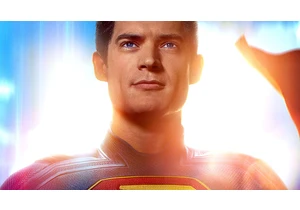A new partnership between music creation platform BandLab and Sony is set to bring users production tools that are aimed at making independent musicians competitive with big-budget artists.
Starting this summer, BandLab will integrate Sony’s spatial sound technology, 360 Reality Audio, directly into its song-creation app—allowing the songwriters and producers who use it to build immersive songs on their smartphones, using any headphones.
“A lot of these creators don’t have access to expensive equipment and gear,” says Jordy Freed, who leads brand, business development and strategy for Sony’s personal entertainment business. “When we look at 360 [Reality Audio] and some of the other technologies we’ll integrate, we’d be doing a disservice to current and future trends of music creation and listening if we didn’t open this up” to more people.
Executives from both companies say the features that BandLab will add in the coming months are just the start of a broader partnership that positions Sony and its personal entertainment business—which encompasses its consumer and professional audio businesses—as a ground-floor partner to BandLab’s 100 million–strong user base.
Making amateur production immersive
During the production process for most songs, producers and musicians assign elements—vocals and instruments, for example—to a channel (left or right in the most basic form). With spatial sound tools offered by companies such as Sony and Dolby Atmos, song-makers can assign any element, or object, a position and volume based on distance in a virtual sphere around a listener’s head.
Though Apple’s spatial audio on Apple Music can be paired with hardware capabilities like head tracking to create a more dynamic spatial experience, a listener doesn’t always need special headphones to listen to an immersive song. But the tools for making immersive music have been reserved for pricier software suites and studio equipment.
“For many years, it’s been so limiting for who can create in spatial, just from a pure economic basis,” Freed says. “A lot of the tools that have existed in spatial are often on the higher end in terms of price points and knowledge needed to use them. If you’re an emerging creator, are you seeing the return on investment if you’re spending that money?”
He says the BandLab partnership will be the first time a broad swath of musicians will be able to experiment with immersive audio. Initially, users will have access to a free set of curated, spatial-enabled beats onto which they’ll be able to add vocals, instruments, and other production elements, with the final song being sa
BandLab cofounder and CEO Meng Ru Kuok says the partnership is designed to make sure BandLab users are able to compete in a music industry in which streamers have been building demand for immersive listening steadily for years.
In January 2024, Apple implemented a bonus payout of up to 10% for songs that are also available in spatial audio on Apple Music. The move came as a growing number of listeners opted for the immersive versions of songs on the streaming platform. Last summer, Apple VP of Apple Music and Beats told Wallpaper that 90% of Apple Music users were listening to songs with spatial audio. Though Apple’s spatial experience is powered by Dolby Atmos, Amazon music currently support Sony’s 360 Virtual Audio. (Tidal removed its support for Sony’s 360 Virtual Audio summer.)
“From the consumption and listening side, there’s been massive progress, but creation and music has always lagged—largely because of the infrastructure of people needing desktop equipment, expensive audio interfaces, expensive mixing gear, and those kinds of things,” Kuok says. “We don’t want our creators to be left behind. We see in Sony a partner that is technologically able to make it accessible for people just through a pair of headphones.”
Equipping smartphone creatives for the future
The spatial audio tools are just the start of multiyear partnership between Sony and BandLab.
Freed says Sony’s work with BandLab is part of his division’s broader efforts to engage with emerging artists and creators. The company works closely with the Recording Academy on its Grammy U program, which supports up-and-coming music professionals via events and networking opportunities. Additionally, in March, Sony and New York University announced the creation of the Sony Audio Institute, which over the next 10 years will offer students in the school’s Steinhardt School of Culture, Education, and Human Development access to Sony tech and research opportunities.
“It was important for us to have a fully rounded-out effort—from the Grammy folks to the 100 million–plus BandLab users, most of whom are under 25 years old and creating with smartphones,” Freed says. BandLab is seeing its fastest user growth in Nigeria and South Africa, as well as Latin America, all areas where smartphones are the dominant tech among creators.
Freed says the partnership could expand to include creator camps and other educational opportunities with BandLab users to train them on Sony technology or connect them with industry professionals.
“This is not something that we look at and ask what the business impact is for the next quarter,” Freed says. “You do something like this because you really care deeply about community and growing a creator base to bring everyone together and shape where things are going for what it means to be a music creator—because it’s changing.”
Login to add comment
Other posts in this group

The new must-have pet accessory? A concrete slab.
On #CatTok, videos are racking up views as cat owners bring slabs into their homes, set them down, and watch their beloved pets sniff, l


OpenAI is rolling out a new AI agent within ChatGPT that can browse th

Mark Zuckerberg and current and former directors and officers of Meta Platforms agreed on Thursday to settle claims seeking $8 billion for the damage they allegedly caused the company by allowing

Welcome to AI Decoded, Fast Company’s weekly newsletter that breaks down the most important news in

Holders of the digital tokens issued by World Liberty Financial, one of the

The use of AI companions is no longer niche behavior but has become em
